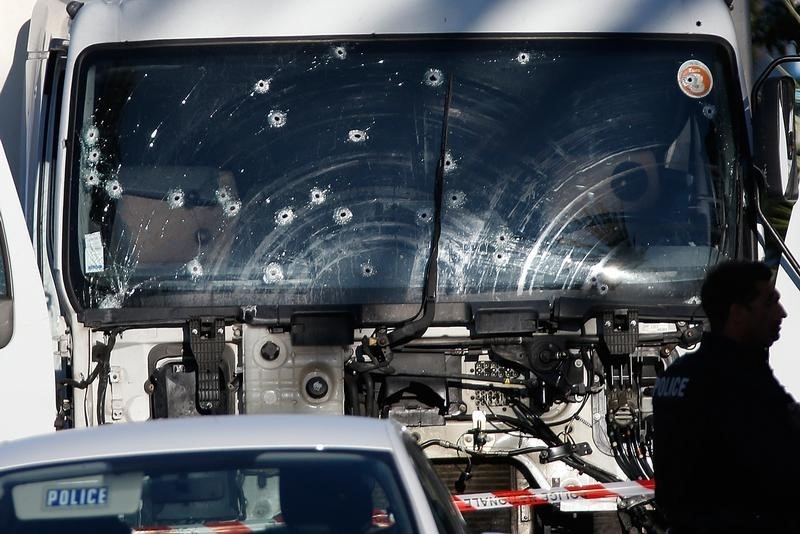PARIS (Reuters) - France's government said on Thursday it had ordered an inquiry into policing on the night of last week's deadly truck attack in Nice in a bid to dispel mounting criticism of security arrangements.
President Francois Hollande, whose personal ratings have plunged since the attack, said the investigation by the national police inspectorate and its report due next week would clear the air after days of accusations from local politicians.
"We will see proof that the preparations were from the start of the required serious standard," the Socialist leader, who is facing elections next year, said during a visit to Ireland. "If there were any shortcomings they will come to light."
Tunisian delivery man Mohamed Lahouaiej Bouhlel was able to drive a 19-tonne truck along a packed sea-front promenade that was cordoned off and mow down dozens of locals and foreigners, killing at least 84 people before police shot him dead.
Much of the criticism, beyond the system of road blocks easily breached by the truck, centres a complex command structure where some units of police answer to local government and others to central government.
The inquiry will look into the detail of how the area was cordoned off for the traditional Bastille Day festivities and how the area was patrolled.
"I welcome the interior minister's decision to order an inquiry of the Nice attack by the police of police," tweeted Christian Estrosi, the head of the regional government in the southeast Riviera coast area who has led the criticism.
The right-wing politician has accused the Socialist administration of misleading the public on the details of the policing arrangements and of not doing enough to protect the public.
Nice police department chief Adolphe Colrat, who answers to central government rather than the regional politicians who are leading the criticism, said the authorities had "at no time" lied or misled people on policing arrangements.

Polls in the wake of the attack showed Hollande's rating as a leader capable of fighting terrorism plunged to 33 percent from upwards of 50 percent after two previous attacks by Islamist militants. They also show three in four people do not want him to get a second term in elections a year from now.